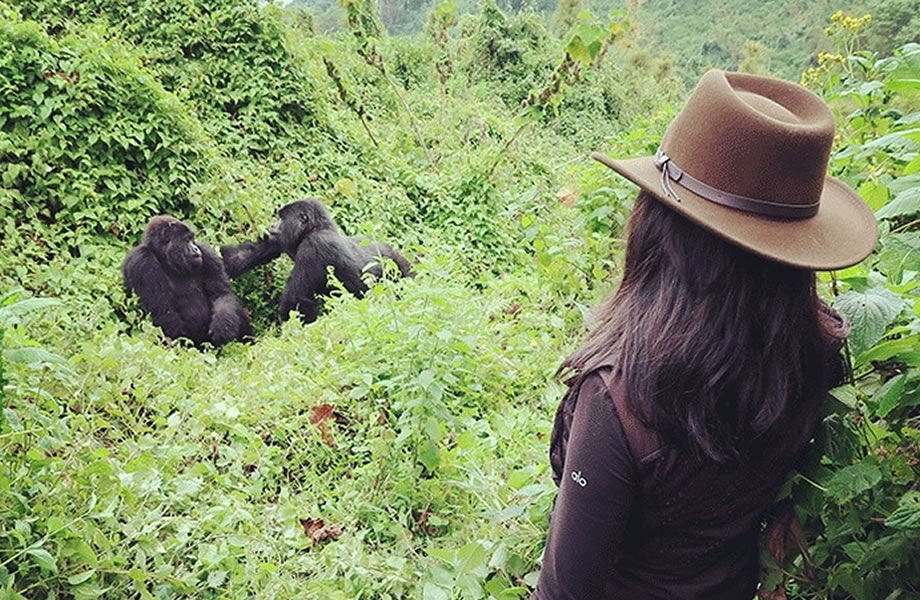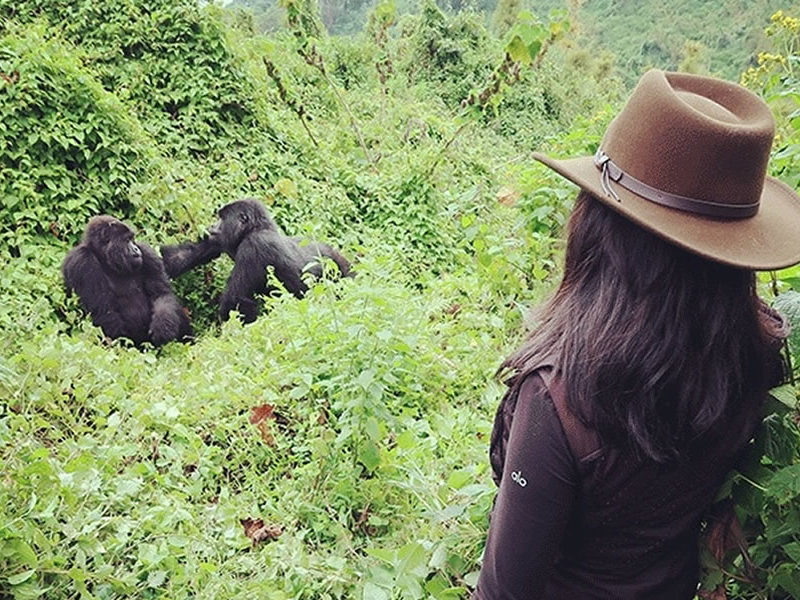
The Success of Gorilla Tourism in Rwanda
Several factors have been attributed to the success of gorilla Tourism in Rwanda and the other country where mountain Gorillas can be visited safely is Uganda, however the Democratic republic of Congo is relatively unstable. With quite a broad client base the demand has been higher than the availability of permits and the good accessibility of the gorillas is an advantage. Rwanda is a small country and the mountain gorillas are fast to be reached within 2 hours from Kigali, the capital city of the Republic of Rwanda as opposed to Uganda which is about 6 hours from the capital city Kampala. There are viable tourists assets which are necessary but not very sufficient, requiring t more infrastructure and to be set up in Rwanda.
A prerequisite is the relative ease of habituating Mountain Gorillas facilitated by the temperate climate. A sustainable Tourism development plan was designed by the republic of Rwanda with the support of the United Nations World Tourism Organization. The Virunga mountain gorilla represent an isolated island population in an upland area surrounded by a sea humanity at some of the highest human densities found on the African continent.
Threats to Mountain Gorillas
Mountain Gorillas are severely threatened by anthropogenic disturbance such as need for agricultural expansion and illegal extraction of resources. Until recent, mountain Gorillas are not hunted down for meat as it was before. Many Mountain Gorillas were killed and other wounded with other groups disintegrating as a result. This resulted in high demand to trap infants which were taken on the black market in the Virunga range. Illegal hunting was mainly motivated by meeting subsistence needs for the poorest people around the Virunga National Park and this pressure presently represents the greatest threat to the survival of the mountain gorilla and the integrity of their habitat.
A key focus for the Contemporary conservation of Mountain Gorillas
There has been a focus of contemporary conservation strategies where the local communities have persistently addresses the local welfare needs to mitigate some of the poverty related conservation threats. This has combined the conservation with the local development through the integrated conservation and development projects. The communities in Rwanda are involved in gorilla tourism in the following ways including; creation of a department for community conservation which is aimed at working with the local education and social infrastructure projects.
The republic of Rwanda has initiated revenue sharing scheme whereby 5 percent of tourism revenues from the park fees are injected into local community projects around the national parks. This has been made possible to ensure that the local people consider the parks as one of their own and it is not known what proportion is shared with revenue represents the budget of the local councils
Benefits of gorilla tourism
The Virunga Mountain Gorilla represents an Isolated Island of Island population in an upland area which is surrounded by sea of humanity at some of humanity at some of the highest human densities found on the African continent. Employment opportunities have been offered to the people of Rwanda through National the national park. The local community have been have been employed as guides, trackers and antipoachers while some privately tour operators have offered community based tourism activities including stays with local family, village walks, banana beer production or even volunteering opportunities in the local communities. As compared to other countries, Rwanda has shown a strong commitment to promote the tourism sector and have developed a clear tourism strategy and a marketed destination. A private sector was involved in the policy sector and dialogue and generally have improved the country’s business environment.

